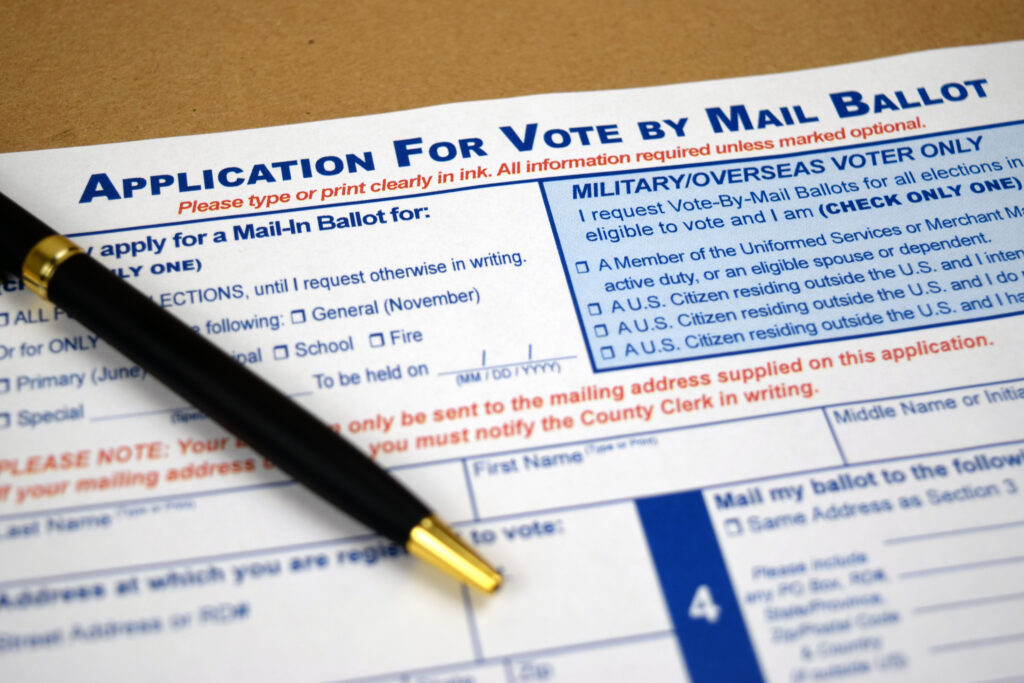Republican-Appointed Federal Judge Rejects RNC’s Challenge to Mississippi’s Mail-In Ballot Receipt Deadline

A federal judge rejected the Republican National Committee’s (RNC) challenge to a Mississippi election law that allows for the counting of mail-in ballots up to five days after an election so long as they are postmarked on or before Election Day.
In an order issued yesterday afternoon, George W. Bush-appointed Judge Louis Guirola held that “Mississippi’s statutory procedure for counting lawfully cast absentee ballots, postmarked on or before election day, and received no more than five business days after election day is consistent with federal law” and the U.S. Constitution.
By preserving Mississippi’s post-election ballot receipt deadline statute, the ruling ensures that voters will continue to be protected from disenfranchisement due to postal delays beyond their control.
Enacted in 2020 with overwhelming bipartisan support, the state’s post-election ballot receipt deadline statute brought the Magnolia State in alignment with approximately 20 other states and U.S. territories that permit ballots to be counted after Election Day.
In a complaint filed earlier this year, the RNC, Mississippi GOP and individual voters alleged that the state’s five-day deadline conflicts with federal law by “effectively extend[ing]” Mississippi’s federal election past the Election Day established by Congress. Shortly after being filed, the RNC’s case was consolidated with a nearly identical case from the Mississippi Libertarian Party.
The RNC’s legal challenge also argued that Mississippi’s post-Election Day receipt deadline disproportionately “harms” Republican voters, whom the committee maintained are historically less inclined to vote by mail.
According to the Republican litigants, the challenged deadline impairs their constitutional right to vote because it results in “valid ballots” — especially those cast by Republican voters — being “diluted by untimely, invalid ballots” that they characterize as “fraudulent” and “illegitimate.”
While Guirola concluded the GOP and libertarian plaintiffs had standing to bring their claims, he turned down the merits of their arguments, reasoning in part that the U.S. Constitution gives state legislatures considerable latitude in regulating federal elections.
In support of the conclusion that post-election ballot deadlines operate harmoniously with congressional Election Day statutes, Guirola pointed to the Uniformed and Overseas Citizens Absentee Voting Act of 1986 — a federal law that “implicitly” provides a post-election receipt deadline for timely cast ballots mailed by military and overseas voters.
On the heels of the lawsuit’s inception, the RNC’s spokesperson made clear that the committee hoped a favorable ruling in the case would “have major ramifications in future elections — not just in Mississippi but across the country.”
Rob McDuff — the director of the Impact Litigation Initiative at the Mississippi Center for Justice — previously explained to Democracy Docket that the RNC’s decision to file a ballot deadline challenge in the GOP stronghold of Mississippi was most likely explained as an act of forum shopping aimed at establishing a favorable precedent for use in other cases. McDuff added that if the case were to be appealed, it would end up before the 5th U.S. Circuit Court of Appeals — the most conservative federal appeals court in the country that has a track record of hostility towards voting rights.
The Democratic National Committee, voting rights groups and the U.S. Department of Justice all waded into the lawsuit to underscore how curtailing the state’s receipt deadline would disenfranchise large numbers of Mississippians who rely on mail-in voting — especially elderly voters, voters with disabilities and those serving overseas in the military.
Earlier this month, a federal judge tossed out a lawsuit from the RNC and the Trump Campaign that challenged Nevada’s four-day post-election deadline for accepting mail-in ballots.
And within the past year alone, Trump-appointed judges in Illinois and North Dakota have rebuffed right-wing lawsuits over post-election ballot receipt deadlines that leveraged largely similar arguments to those made by the RNC in the Mississippi and Nevada cases. The challenge to Illinois’ 14-day receipt deadline — led by GOP representative for Illinois’ 12th Congressional District, Michael Bost — is currently on appeal in the 7th U.S. Circuit Court of Appeals.
In light of recent reports regarding nationwide mail delivery delays, voting rights advocates and local election officials alike expect that post-election receipt deadlines will be especially crucial in ensuring that late arriving mail-in ballots are counted in the 2024 election cycle.